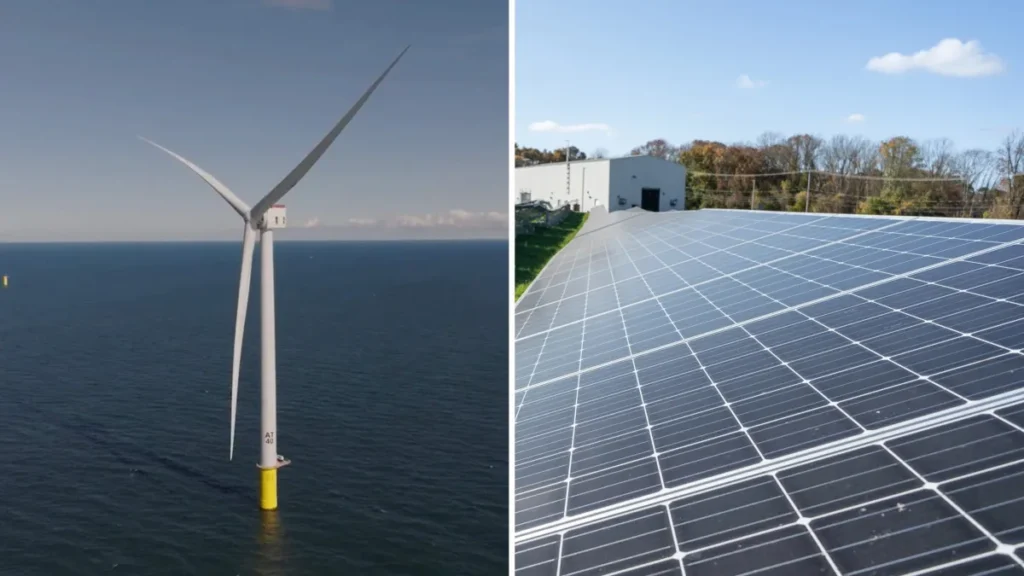In a significant policy shift, the Trump administration has intensified its scrutiny of renewable energy tax incentives, issuing new guidance from the Treasury Department that further restricts eligibility for solar and wind tax credits. These incentives, long considered critical drivers of renewable energy adoption in the United States, are now under tighter control following the executive order mandating a “strict enforcement” of existing restrictions.
Understanding the New Guidance
The Treasury Department’s updated rules clarify which projects qualify for the Investment Tax Credit (ITC) and Production Tax Credit (PTC) for solar and wind installations. Under these rules, certain projects that previously would have qualified for the full credit are now partially or entirely excluded. While the administration frames these measures as ensuring proper use of taxpayer dollars, the guidance has sparked widespread concern among clean energy developers and environmental advocates.
The new restrictions affect:
- Project Ownership Structures: Partnerships, joint ventures, and certain corporate setups may no longer qualify.
- Eligibility Timelines: Projects in early development or planning stages could face uncertainty regarding their ability to claim credits once construction begins.
- Technological Criteria: Specific technologies or configurations may be deemed ineligible if they do not meet narrowly defined standards.
The Broader Context
The Trump administration’s move is part of a broader pattern of regulatory tightening aimed at renewable energy incentives. The executive order to “strictly enforce” restrictions signals a shift from encouraging growth in the solar and wind sectors toward more cautious oversight. Historically, tax credits like the ITC and PTC have played a pivotal role in making renewable energy competitive with fossil fuels. By reducing the financial viability of projects, these new measures risk slowing the transition to cleaner energy sources.
According to industry analysts, the policy shift could result in:
- Delays in planned solar and wind projects due to financing challenges
- Increased costs for developers trying to navigate complex compliance rules
- A potential reduction in overall investment in renewable energy infrastructure
These consequences are particularly concerning as climate experts warn of the urgent need to accelerate decarbonization to meet global emissions targets.
Impacts on Local Communities and the Climate
Local communities stand to feel the effects of restricted incentives in several ways:
- Job Growth: Solar and wind industries have been major sources of employment in manufacturing, installation, and maintenance. Tighter rules could slow job creation in these sectors.
- Clean Energy Access: Incentives help make renewable energy affordable for businesses and homeowners. Limiting these credits may slow the adoption of cost-effective solar and wind power.
- Climate Goals: Reducing the economic viability of renewables undermines national and global climate commitments, making it harder to reduce greenhouse gas emissions.
For communities and advocates concerned about climate action, these developments highlight the importance of policy vigilance and engagement in shaping sustainable energy futures.
Industry and Advocacy Responses
Renewable energy advocates have expressed alarm, framing the guidance as a step backward in the fight against climate change. Industry groups are calling for clarity, transparency, and stability in federal policy to ensure that investors and developers can continue to build projects without fear of retroactive disqualification.
Policy experts note that while enforcement of tax rules is necessary, overly restrictive measures risk discouraging private investment in technologies essential to meeting both economic and environmental goals.
Moving Forward: Staying Informed and Engaged
For citizens, investors, and environmental advocates, understanding these changes is critical. Monitoring policy updates, engaging with elected officials, and supporting initiatives that promote clean energy can help ensure that renewable energy development remains a cornerstone of climate action.
At Sustainable Action Now, we cover the latest developments in climate policy and energy reform, providing insights on how federal actions impact communities, the environment, and the transition to sustainable power. For more in-depth reporting on climate change, renewable energy, and policy updates, visit our Climate section.
This tightening of tax credit eligibility underscores the fragility of renewable energy incentives under shifting political priorities. As the nation navigates the twin challenges of economic growth and climate responsibility, maintaining support for solar and wind energy remains crucial to a sustainable future.


